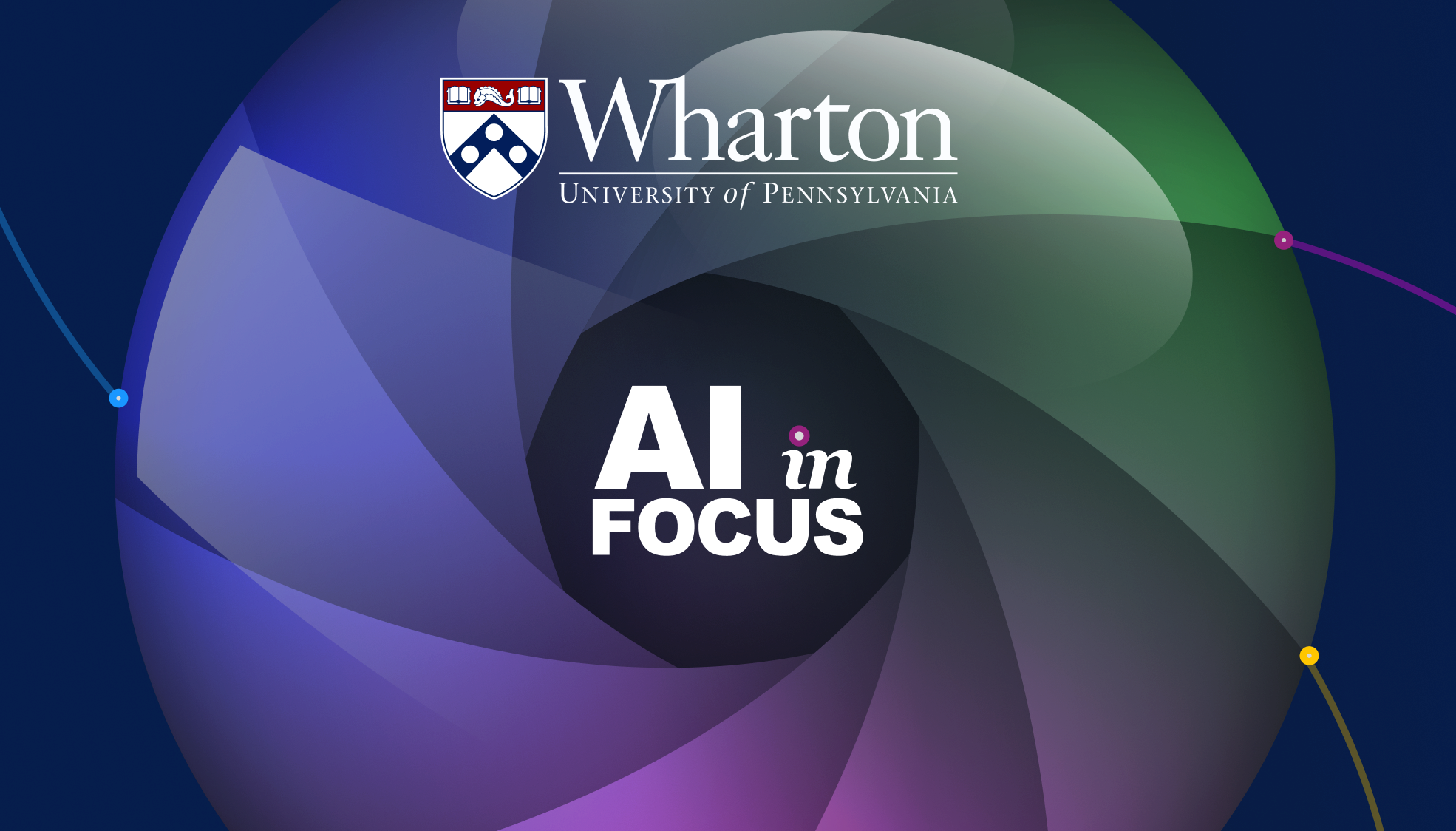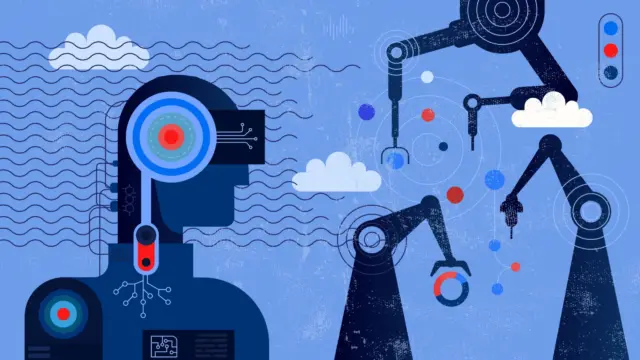As companies redefine their business models and incorporate AI into operations, the Wharton School recognizes the vital role that dedicated AI research centers will play in navigating future changes to transform and innovate business enterprises and society. Our research is dually focused on improving business processes and understanding human behavior around AI applications and adoption.
Featured Event
AI and the Future of Work
May 22-23, 2024
AI at Wharton is proud to host this two-day in-person academic conference which will explore how artificial intelligence is transforming the workplace, covering themes on AI’s impact on employee experience, the necessity for reskilling and upskilling for an AI-driven future, and forms of collaboration between AI and humans in professional settings.

2023 Annual Report
As the business world enters a new era of transformation, the integration of AI into core operations and models becomes not just an option, but a necessity. At The Wharton School, we’re not just observing this shift; we’re actively participating in it through the establishment and growth of AI at Wharton. This past year has been filled with outstanding milestones and achievements that underscore the expansive potential and impact of AI. Read more >>

AI Is Here. What’s Going to Change?
The artificial intelligence revolution is officially upon us. Hear from host Eric Bradlow, vice dean of Analytics at Wharton, as he meets with Wharton faculty experts across a wide range of business domains — from health care and neuroscience to sports and the auto industry — to learn how AI will impact these fields moving forward, and what we can do to stay ahead of the curve.
Focus Areas
Featured AI Courses

The Future of AI: How Wharton is Leading the Charge
The Wharton School has long been considered a pioneer on the subject of artificial intelligence (AI), and the latest efforts show how the institution is leading the way by exploring how the utilization of AI tools can solve business problems. Read more >>
Contact
AI at Wharton
Academic Research Building
265 S. 37th Street, Third Floor
Philadelphia, PA 19104
aiwharton@wharton.upenn.edu










